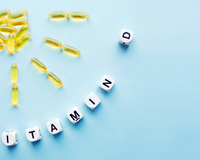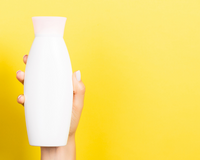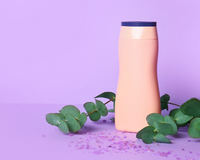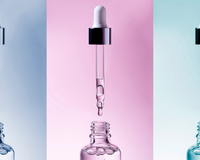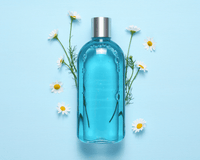Anti Ageing Hair Care Products
Trends in beauty marketing come and go, and right now it's all about contouring, color-correcting, and anti ageing hair care products when it comes to hair care. Shampoos, conditioners, and styling products that are supposed to treat and reverse the signs of aging are getting a lot of attention these days. And that idea sounds pretty cool. Who wants to think of their hair as old? That would be no one.
Your hair can show your age, just like your taste in music and how comfortable you are with social media. Like the rest of your body, your hair changes as you get older. The hair follicles get smaller, sebum production goes down, and some people lose pigment cells and go gray. When your hormones change, you lose more hair and it grows back more slowly, which makes your hair thinner.
At the same time, the hair turns gray because the pigment cells in the hair bulb die off over time. But even though your hair changes as you get older, you can change it.
Where To Get Anti Ageing Hair Care Products?
You can find a lot of "anti-aging" hair products at any drugstore. Even though those shampoos and conditioners might be really great, they probably don't do anything that other really great shampoos and conditioners don't do.
When we think of anti-aging routines, the first thing that comes to mind is skin care. But an anti-aging hair care routine is also very important. Because hair changes as people get older. Hormones and other parts of the body change as we get older. Because of this, your hair may change in color, texture, speed of growth, and volume.
Because of this, you need a whole-body routine to take care of your hair as it gets older. Read this article to find out how to keep your hair in good shape and help it age well.
The Best Ways To Take Care Of Your Hair To Keep It From Aging
As people age, hair loss is a common problem. If it's been bothering you, ask your hairdresser for a short cut that will make your hair look full. Try long layers if you like to wear your hair long. Getting your hair cut every 5 to 7 weeks can help keep it healthy.
This is important for your hair and your health as a whole. As you get older, you may have health problems, hormonal imbalances (after menopause), or a lack of certain nutrients.
Hair loss can be caused by not getting enough iron, zinc, niacin, essential fatty acids, selenium, vitamins A, D, and E, folic acid, biotin, proteins, amino acids, and antioxidants. Also, both the amount of hair and how fast it grows get worse after menopause. So, eat a healthy, balanced diet and talk to your doctor about vitamin supplements.
Moisturize Your Hair
Like your face, your hair needs to be moisturized to keep it soft and healthy and to stop it from getting dry and frizzy. Try deep conditioners, hair masks, and oil massages to make your hair feel better. Massages help your scalp and hair stay healthy and help you relax.
Use Good Brushes For Your Hair
To avoid getting caught, buy a good quality brush with nylon or natural boar bristles. You can use the nylon bristle brush to gently get rid of knots, and the boar bristle brush to spread your hair's natural oils all along its length.
Look At What's In Your Shampoo
Switch to a shampoo and conditioner that are gentle and hydrate your hair. Check the list of ingredients and stay away from any product that has harsh sulfates, alcohol, fake scents, or preservatives. Look for products that have extracts from natural things or herbs. If you have problems with your scalp, use a medicated shampoo and talk to a doctor about what other products you should try.
Don't Use Heat Styling
If you use flat irons and hair dryers with high heat settings too often, your hair can get damaged. When styling hair that is getting older, you need to be gentle. Heat styling tools are best avoided. But if you have to use them, use the lowest heat setting.
Because hairsprays contain ethanol and other drying alcohols that could be bad for your hair. Strong-hold hair products have a lot of alcohol in them, so don't use them. You can use aloe vera gel instead of hair gel to get rid of flyaways and frizz.
Be Gentle
Just like your skin, your hair needs more love and care as you get older. Instead of tying your hair tightly, try loose buns, braids, and low, loose ponytails. Do not pull on your hair to make it fuller. Also, wrap a silk scarf around your head or use silk pillowcases to stop friction while you sleep.
Get Rid Of Residue
Hair products like leave-in conditioners, shampoos, oils, and styling products can leave behind residue and cause buildup. This makes hair tangle and fall out. About once every two weeks, use a clarifying shampoo to clean your scalp. Then, use a conditioner that will feed your hair.
If you wash your hair too often, it can lose its natural oils and become dry, which can make it frizzy, tangle, and break. Don't wash your hair more than twice a week. Also, use a shampoo with ingredients like aloe vera, emollient oils, sea kelp, green tea, and vitamin E that will nourish and hydrate your hair.
Don't rub your wet hair with a cotton towel or any other kind of towel. Use a microfiber towel to cover your head instead. Microfiber towels are soft and gentle on hair. They also soak up water quickly. You could also wrap your hair in a soft cotton T-shirt.
Cut Down On Your Stress
Things can go wrong and make life stressful. Stress can have a big effect on the health of your hair, making it break and fall out and stopping it from growing.
Even though hot showers and steam baths are relaxing, they are not good for your skin and hair. They take away the natural oils and dry out the hair, which makes it hard to manage and more likely to break. Also, as you get older, your skin gets thinner and can't handle high temperatures. Use water that is neither too hot nor too cold for the shower.


